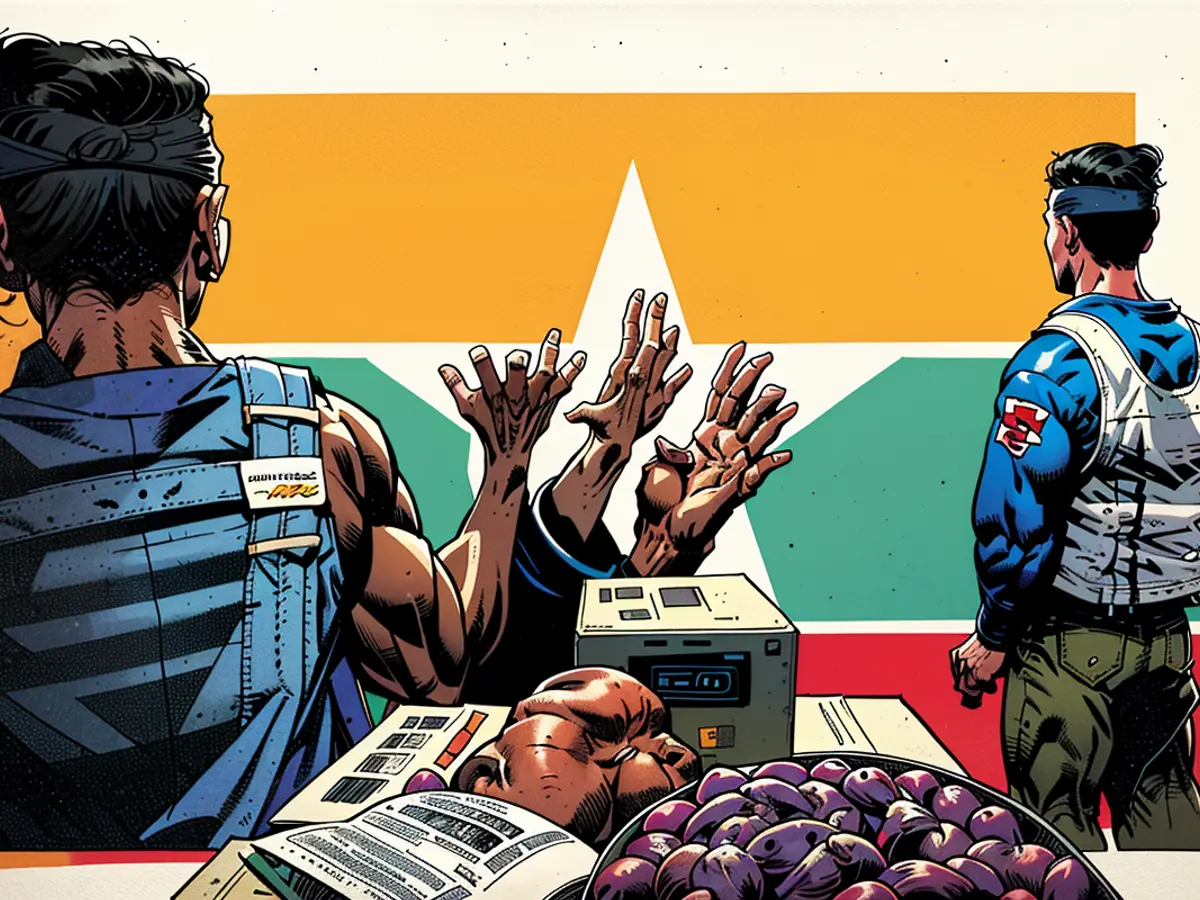"Isn't dinner being served tonight?" Allegations surface that Myanmar's military regime is employing hunger as a lethal "tool," restricting crucial food assistance.
Soldiers had invaded their village in Rakhine state, Byine Phyu, and forced them and their family members out of their homes. They imprisoned all the men and murdered her brother and other neighbors, she testified.
Fleeing survivors like Khin Mar Cho took shelter at a nearby monastery, outside Sittwe's regional capital. A solitary monk is struggling to provide for about 300 refugees in the monastery as a three-year-long civil war rages on, led by Myanmar's military junta against armed opposition.
Khin Mar Cho stated, "There are days we have no food, even when we're starving." She explained, "I can't feed my child anything more than the meals given by donors as I don't have a job or income and all the male family members have been detained."
Several aid workers have reported that starvation is being utilized as a weapon of war in Rakhine state.
The junta is stopping aid from reaching the desperate people by establishing checkpoints, blocking roads and waterways, and refusing permits to humanitarian groups, multiple high-ranking United Nations officials and international aid workers in Rakhine revealed to CNN anonymously due to not being authorized to speak.
Rakhine has become a hotspot of the conflict, with the Arakan Army (AA) – accused of human rights violations – capturing at least 10 of the state's townships since a year-long truce with the military fell apart in November.
The aid officials reported that the junta is trying to "starve" civilians in AA-controlled territory using methods repeatedly described as war crimes and crimes against humanity by UN officials and rights groups.
"They're using food as a weapon," a senior aid official told CNN. "That much is evident."
In a statement to CNN, Myint Kyaw, Myanmar’s Deputy Permanent Secretary for the Ministry of Information, claimed that rebel groups, not the junta, are preventing "people's access" to territories they control.
"The Myanmar government is dedicated to the equality of all citizens," the statement said. "Every citizen has the right to travel freely without restrictions."
Starvation Risk
Aid workers can't fully grasp the magnitude of the suffering caused by telecoms and internet blockages and restricted access to affected areas.
However, they believe the crisis is extreme.
According to the UN, fewer than a quarter of the 873,000 individuals requiring food assistance in Rakhine have received it.
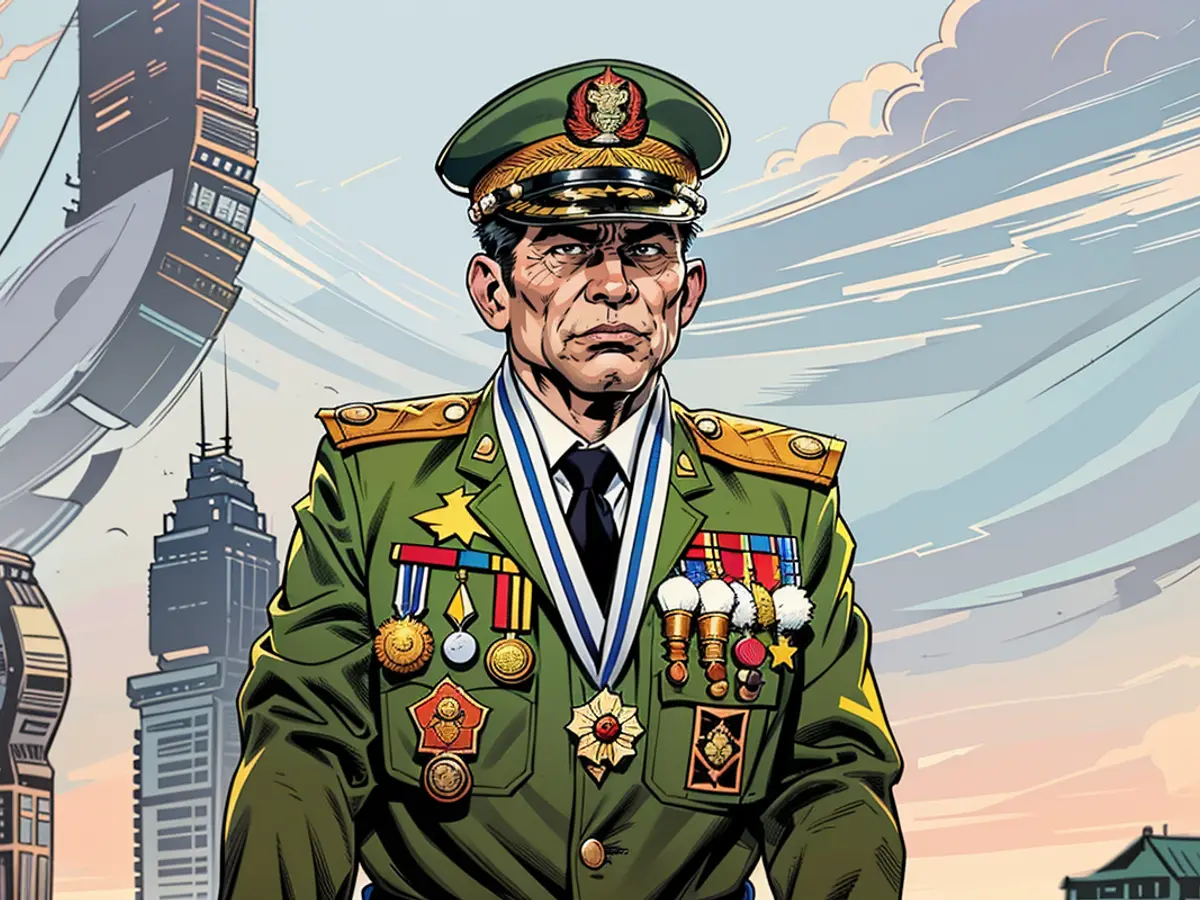
A UN report issued in June warned, "There is a high chance that the most vulnerable... may die if they fail to receive support." Currently, it's August, and the situation has deteriorated.
Displaced people in Rakhine have begun to express feelings of desperation as they struggle to cope with escalating violence and dwindling supplies of food and medicine.
Prices for fundamental necessities like rice, fuel, and cooking oil have skyrocketed due to shortages caused by the junta's control over supply routes from Myanmar's largest city, Yangon. Requests to transport goods, including food, into the region have been refused, aid officials explained.
Meanwhile, food production in the state has plummeted, with farmers anticipating a 50% decline in this year's rice harvest, as reported by Myanmar’s independent news outlet The Irrawaddy.
Mohammed, a 43-year-old father of three, has resided in a displacement camp with his family in Sittwe since 2012, when anti-Muslim violence forced tens of thousands of people from their homes.
The recent fighting has yet to reach Sittwe, which remains under the junta's control. However, since the ceasefire deal between the AA and the military collapsed in November, the camp has become nearly isolated, and conditions have significantly worsened, he said.
Mohammed's children attend a small, makeshift school within the camp, but he confesses that it's difficult to foster their aspirations when he can only provide them half a bowl of rice.
"My children would ask, 'Aren't we eating tonight?' In those moments of desperation, I'd go to a neighbor and ask for some food to feed our children," Mohammed told Partners Relief and Development, an aid NGO.
However, his neighbors are hungry as well and have little to spare.
Shayna Bauchner, a researcher at Human Rights Watch, informed CNN that the junta is hindering aid deliveries in Rakhine by obstructing roads and waterways, seizing relief cargo, and confiscating medical supplies.
"As the conflict has spread throughout Rakhine, we've also seen the destruction of roadways and bridges," she said. "The result is, essentially, no one has access to these places."
Aid groups, including UN agencies, must obtain "travel authorizations" from the state government, which reports to the ruling military council, before they can access territory considered "travel-restricted areas" by the junta, according to aid officials.
In February, the junta stopped issuing nearly all travel authorizations to contested or rebel-controlled territory in the state, most of which are in northern Rakhine, according to seven aid officials with direct knowledge of the matter, all of whom requested anonymity.
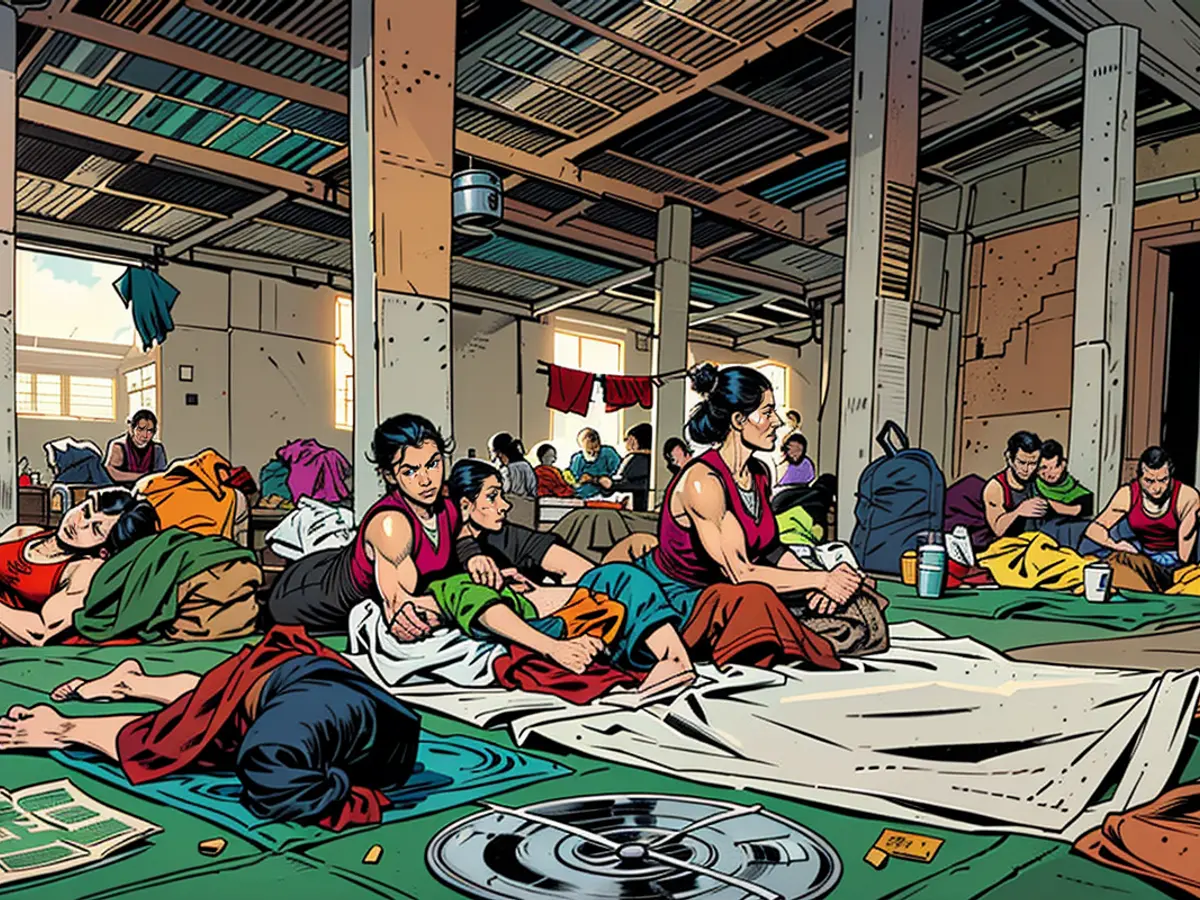
Without the travel authorizations, it's impossible to bypass the junta's road and waterway blockades, they said.
In May, certain humanitarian organizations obtained authorization to journey to Sittwe, with the junta permitting them to commence transporting supplies from Yangon. Two vessels carrying rice and essential medicine arrived in Sittwe two months later, however certain supplies such as solar lights, hygiene kits, and newborn kits were still being held up, as reported by OCHA in August.
The teams are still unable to access the surrounding townships or areas beyond their reach.
"No formal authorization has been granted to humanitarian partners to implement activities outside of Sittwe township since November 2023," a senior aid official told CNN.
In an attempt to dismantle this blockade, representatives from the UN Office for the Coordination of Humanitarian Affairs (OCHA) held informal negotiations with high-ranking junta officials last month in the country's capital, as two sources told CNN.
The UN aid officials explicitly made clear in these meetings, which have not been previously reported, that the ongoing situation is unacceptable, the sources added. Furthermore, the agency shared its concerns with the UN Security Council, the European Union, and China, among others.
The junta asserted that they restricted aid workers' access to AA territory because it was not safe for them to travel through areas controlled by the military. However, a senior aid official stated, "That's a weak excuse. We don't need the junta to provide cover for our security."
Local aid workers attempting to distribute food and supplies to junta-controlled territory without obtaining a permit have also been apprehended, according to sources on the ground.
Aid workers and officials believe that the junta's blockade is part of a broader military strategy for diverse wars, intending to erode the rebel group's popular support by cutting off food, water, and medical care to the civilian population.
Bauchner, a Human Rights Watch researcher, stated, "The blockades are intentional and aimed at harming the population, which is an apparent war crime."
Myint Kyaw, of the junta's information ministry, claimed that humanitarian groups are "being allowed to enter safe areas" after completing a verification process, claiming without evidence that the rebel groups were obstructing aid deliveries.
In the statement, the junta linked instability in the region to alleged online gambling, planting and selling illegal drugs, human trafficking, online scams, and illegal weapons deliveries to "terrorist groups" in rebel-controlled areas.
Ejaz, a local aid official based in northern Rakhine, said, "The junta is punishing civilians collectively by blocking most food and medicine imports."
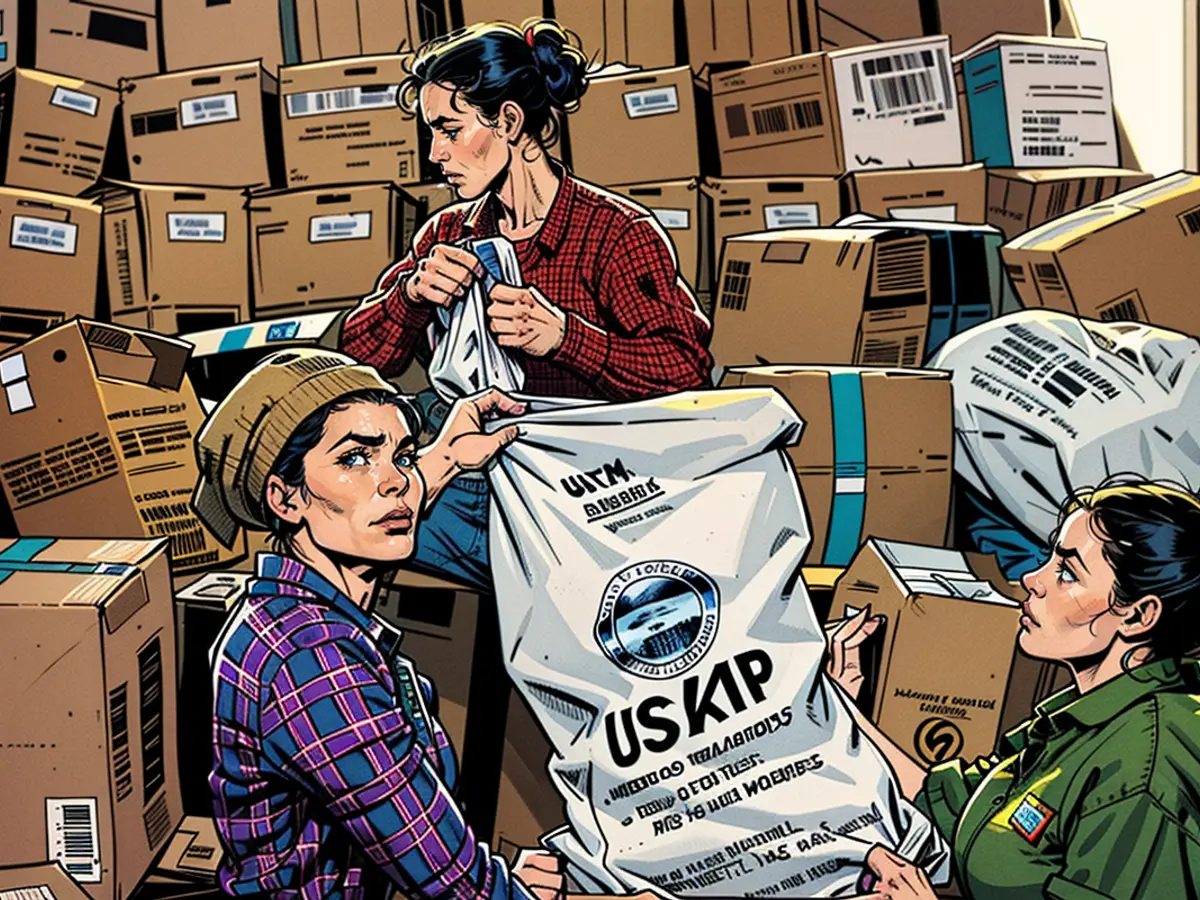
"Even the limited food that is available in the state is out of reach for most people, primarily due to blockade-induced inflation," Ejaz noted, requesting anonymity for security reasons.
"People are barely surviving on rice and salt," he said, having witnessed the situation firsthand.
War and hunger
Many of the displaced people in Rakhine belong to the stateless Rohingya minority, who have faced discrimination for decades in a country that denies them citizenship.
Jamila, a 26-year-old former resident of the predominantly Rohingya town of Buthidaung, close to the Bangladesh border, said that the community endured food shortages for at least six months due to the fighting.
"No one came to offer us food. The junta blocked all roads and aid trucks," said Jamila, who prefers to be identified by one name and spoke to CNN from a refugee camp in Cox's Bazar, Bangladesh, where her family recently fled.
Many shops were looted by fighters and soldiers, she revealed, and those that remained open could only obtain supplies by smuggling them at high prices across the border from Bangladesh.
Food supplies were also strained as large numbers of displaced people from neighboring villages sought refuge in Buthidaung to escape fighting and landmines.
"Everyone was assisting one another," she said, describing her experiences living with risk and hunger.
With a lack of food and medicine, Jamila said her children suffered from diarrhea and vomiting. "I am suffering from allergies. My entire body is covered in itching, yet there is no medicine or treatment available," she said.
In late May, the Arakan Army claimed to have seized Buthidaung. Activists and relatives of residents accused AA soldiers of extrajudicial killings, burning and looting Rohingya neighborhoods, and forcing thousands of people to flee.
Jamila explained how fighters attacked her village, saturating her home with petrol and setting it ablaze while she and her family were still inside. "As the flames consumed our home, we could only salvage what belongings we could from the ground floor. The upper floors didn't have time to evacuate," she said.
Her parents-in-law, sleeping upstairs, did not survive. "We did not have time to mourn," she said, "for we heard the screams of people and the cries of children."
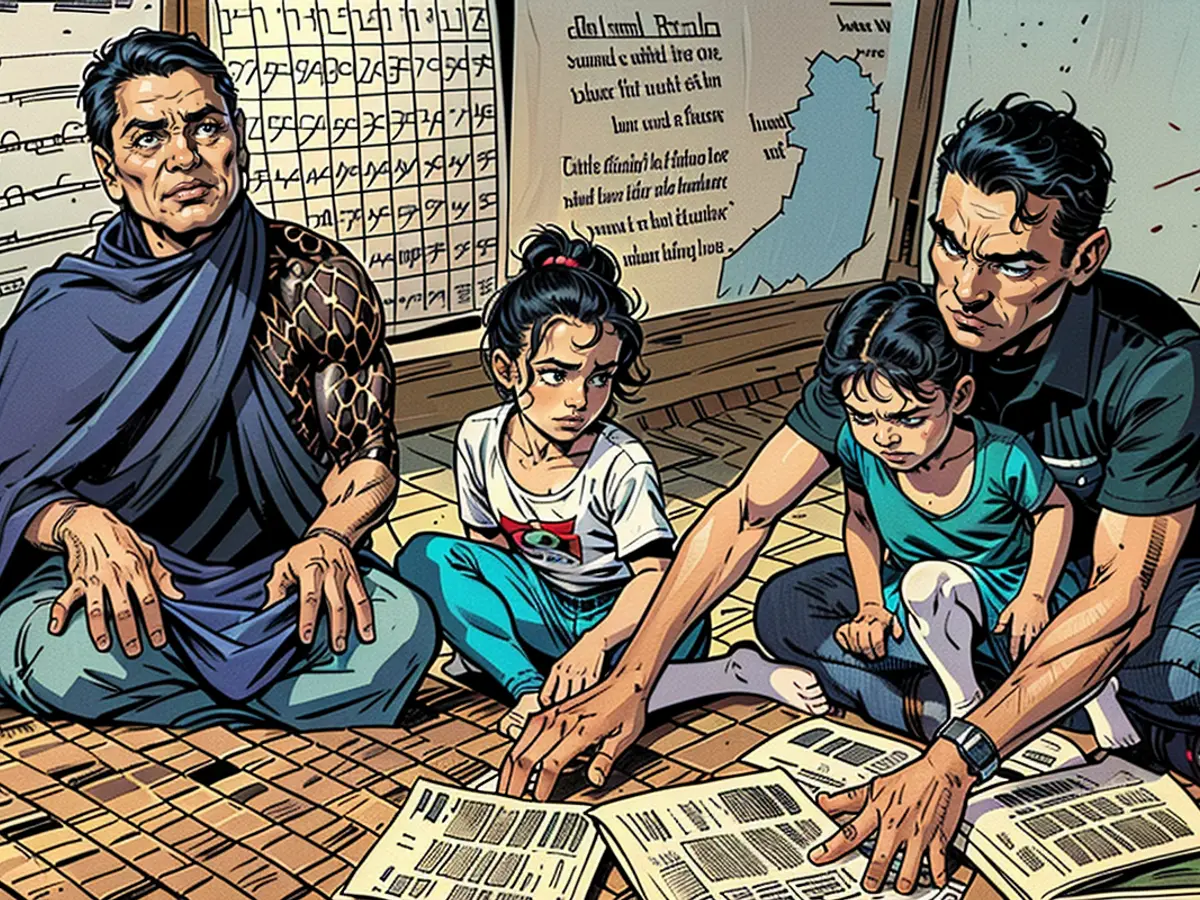
She walked for six days to reach Bangladesh, stating, "We survived by eating banana leaves and drinking pond water."
CNN could not confirm Jamila's account but her story correlated with other reports from the incident.
In a statement, the AA denied having torched Buthidaung, stating, "We adhere to our principle of fighting under the military code of conduct and never target non-military objects."
In early August, the AA was accused of killing Rohingya people in drone strikes and artillery fire as villagers fled the nearby town of Maungdaw. The AA denied any involvement and placed blame on the Myanmar military and allied Rohingya armed groups.
CNN reached out for comment to the Arakan Army (AA) and the Humanitarian and Development Coordination Office (HDCO) of the United League of Arakan (ULA), the AA's political wing.
In response to CNN's request, the HDCO stated that approximately 590,000 individuals are displaced in Rakhine state, based on their records. However, civil society organizations can only reach around 20-30% of conflict-affected people due to limited reach.
"Emergency responses are remarkably slow. The ULA government, including the HDCO, is doing its best to provide food, shelter, water, and healthcare using the limited resources at our disposal," the HDCO mentioned.
The primary obstacle remains the lack of essential supplies, including food, non-food items, medicine, medical equipment, women's dignity kits, agricultural products, seeds, and fuel, the HDCO stated.
As their primary focus is on data collection, emergency response, monitoring aid requirements, and tracking aid distribution, the HDCO acknowledged that junta blockades and the risk of aerial bombardments prevent them from reaching those in need in certain instances.
"We are overlooked"
When official aid deliveries are obstructed by the junta, regional and local humanitarian organizations take covert measures to operate without the military's approval, putting their lives at risk to assist those in need, as per officials from four local aid organizations.
However, it's not nearly enough.
At least 18.6 million people—around one-third of Myanmar's population—require humanitarian assistance this year, according to an OCHA report published last week. Regrettably, aid workers have only managed to reach 2.1 million people. Even in territories unaffected by the junta's blockade, ongoing war, insufficient funding, and international indifference are limiting aid workers' access.
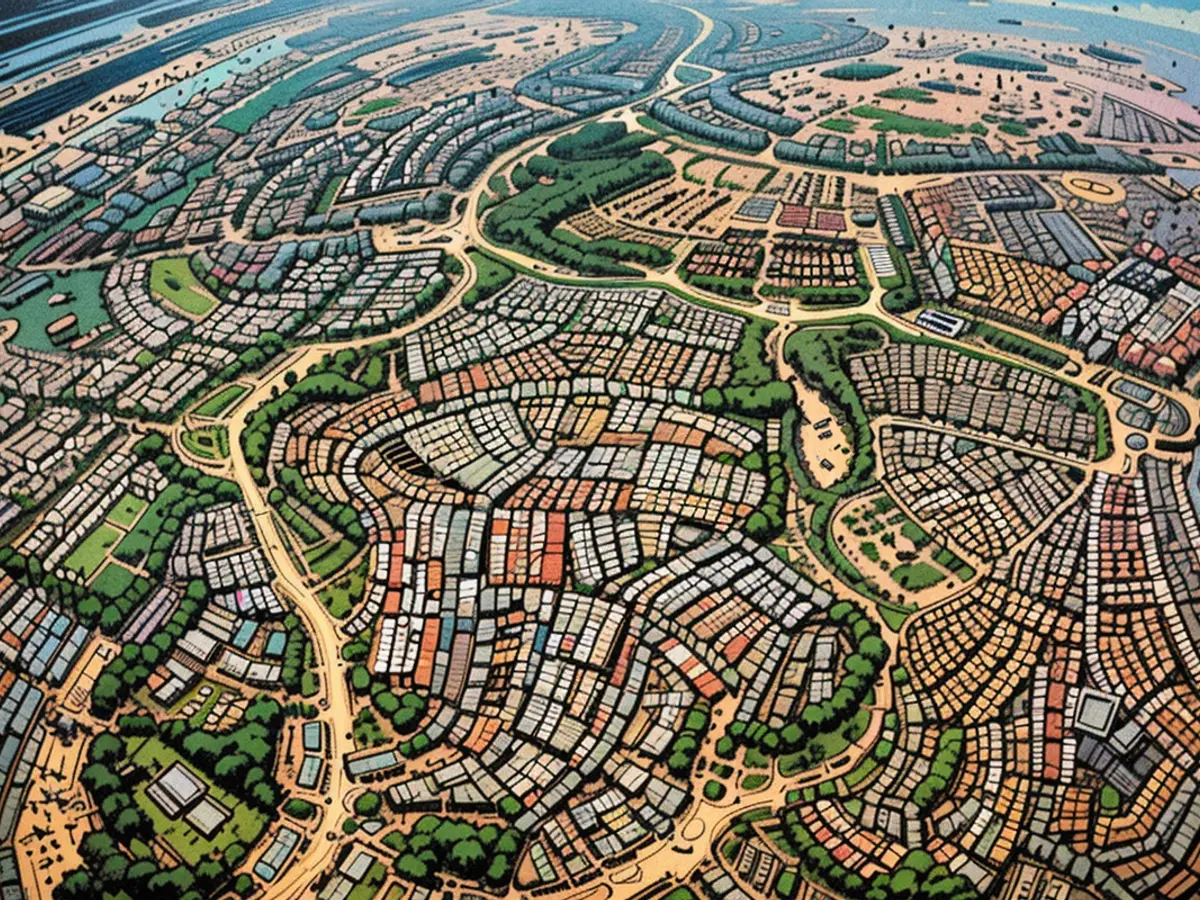
Aid workers have also become targets in the junta's conflict.
A World Food Programme (WFP) warehouse in Maungdaw was looted and burned in June, depriving that community of urgently needed food aid. However, WFP's local partners were already struggling to reach their warehouses in Rakhine due to ongoing shelling, according to a source directly involved.
Junta-imposed communication restrictions are also constraining aid workers' operations, they claim. Signal, a popular encrypted messaging app, is inaccessible to Myanmar users unless they use a VPN (virtual private network), according to four Yangon residents who spoke with CNN. Junta police are conducting random phone checks throughout the city as well, one resident added.
Meanwhile, the UN's humanitarian response program in Myanmar is one of the most underfunded in the world. UN agencies and their local partners estimate that approximately $1 billion is required to support aid initiatives in the country through 2024, but they have only raised about 20% of that amount.
"In the best-case scenario, based on my discussions with donors, we may raise 30-35%, though not beyond that, by the end of the year," Sajjad Mohammad Sajid, the OCHA Head of Office in Myanmar, told CNN. "Myanmar is facing a significant decrease in funds despite rising food insecurity for the second consecutive year."
Without immediate financial assistance and the removal of blockades, aid officials fear that they will be forced to selectively provide humanitarian aid, leaving millions of vulnerable civilians without urgent assistance.
"Underfunding will lead to livelihoods exceeding the point of repair," the OCHA report warns.
A senior UN aid official in Myanmar attributed some of the funding shortfall to international apathy. There are few global advocacy groups and international news outlets consistently reporting on the country, and human rights abuses in Myanmar have gained little international attention, he noted.
"We have become overlooked," the official declared. "Donors will find it challenging to fund missions that are overlooked."
The monastery in Sittwe, where Khin Mar Cho and her family now reside, depends on food donated from the local community.
Another villager from Byine Phyu, who declined to be identified for safety reasons, informed CNN that on good days they are provided with two basic meals of rice and vegetables, but her children, aged 11 and 7, often go to bed hungry.
"The soldiers took all our money," she said. "All we need right now is aid and help to survive this."
Though his small monastery is overflowing with displaced people, the monk attempts to collect additional donations from the community to feed those in the compound more than meager helpings of rice.
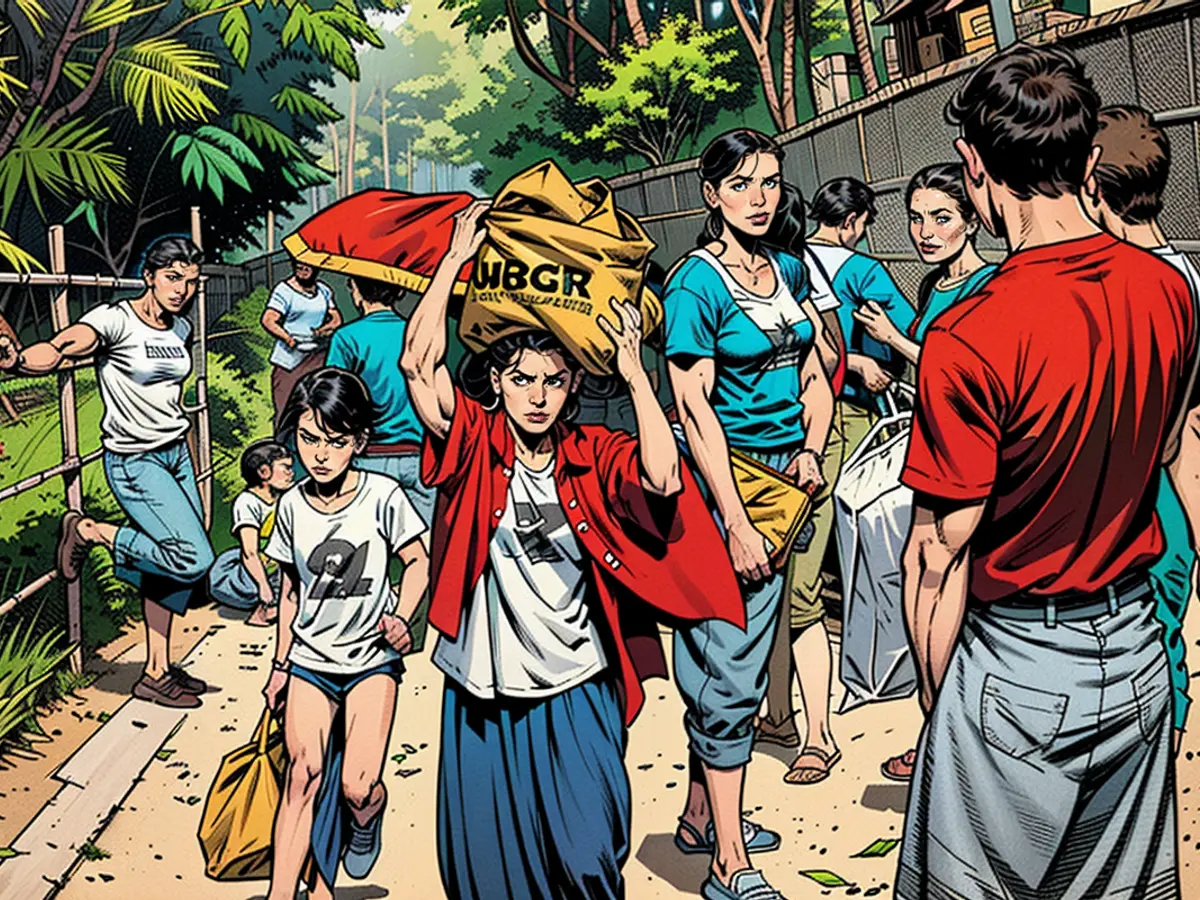
However, they receive scant food donations. The dire situation is exacerbated by overcrowding, as many families are forced to sleep outside without cover in the rainy season, leading to widespread sickness and diarrhea, the monk stated.
"There are no NGOs or medics assisting them," he said. "The only support we receive is from the fire service for their funerals."
CNN's Rosa de Acosta contributed to this report.
In the midst of the three-year-long civil war in Rakhine state, Khin Mar Cho and her family are struggling to survive with only the food given by donors. Due to the junta's blockade and control over supply routes, prices for fundamental necessities like rice have skyrocketed, making it difficult for Khin Mar Cho to feed her child.
The UN has reported that fewer than a quarter of the 873,000 individuals requiring food assistance in Rakhine have received it. This situation has been described as extreme, with a high chance that the most vulnerable people may die if they fail to receive support.
This blockade is part of a broader military strategy, according to aid officials, intended to erode rebel group's popular support by cutting off food, water, and medical care to the civilian population. This has been condemned as a war crime and a crime against humanity by UN officials and rights groups.
